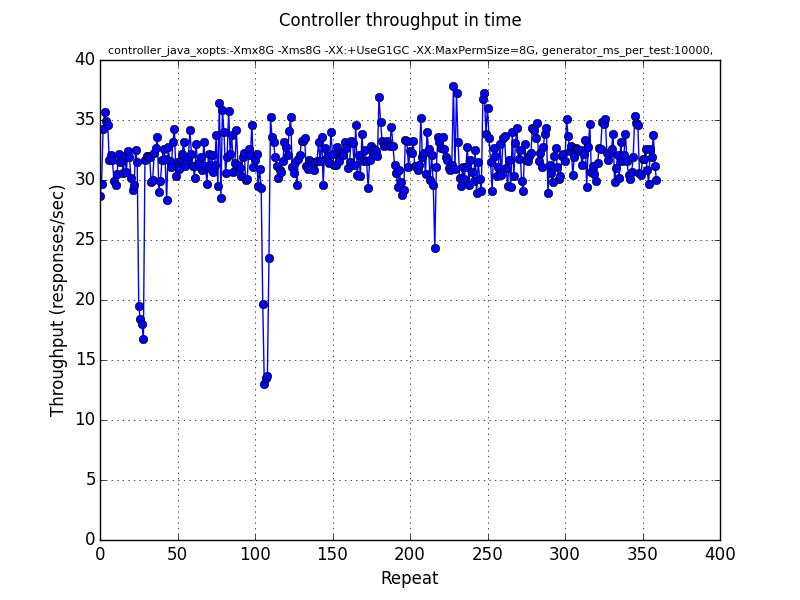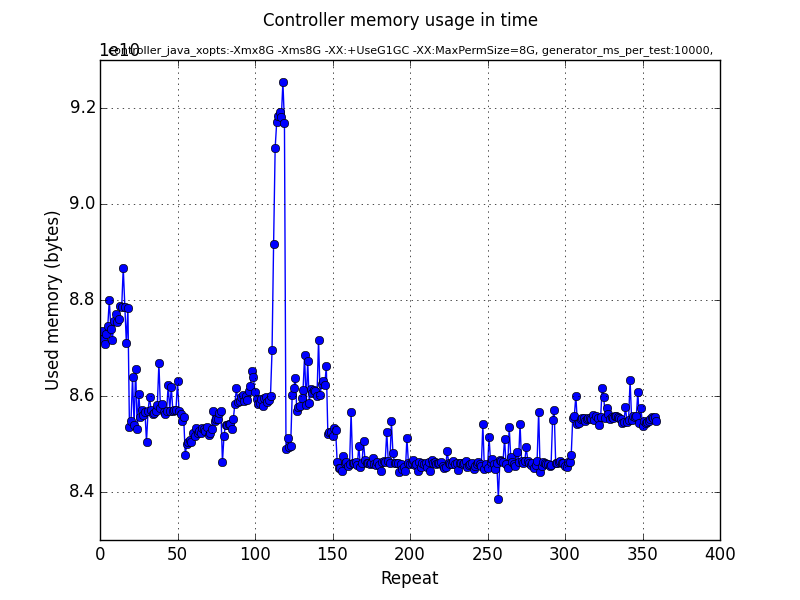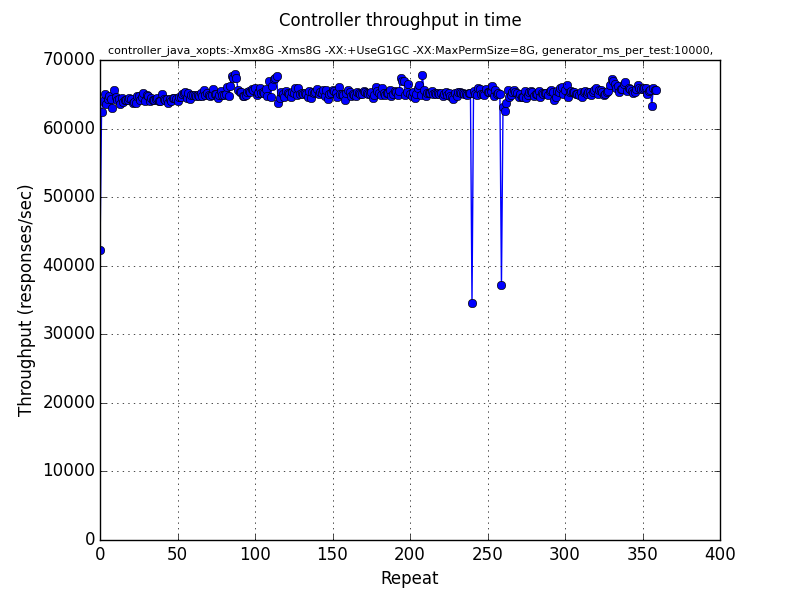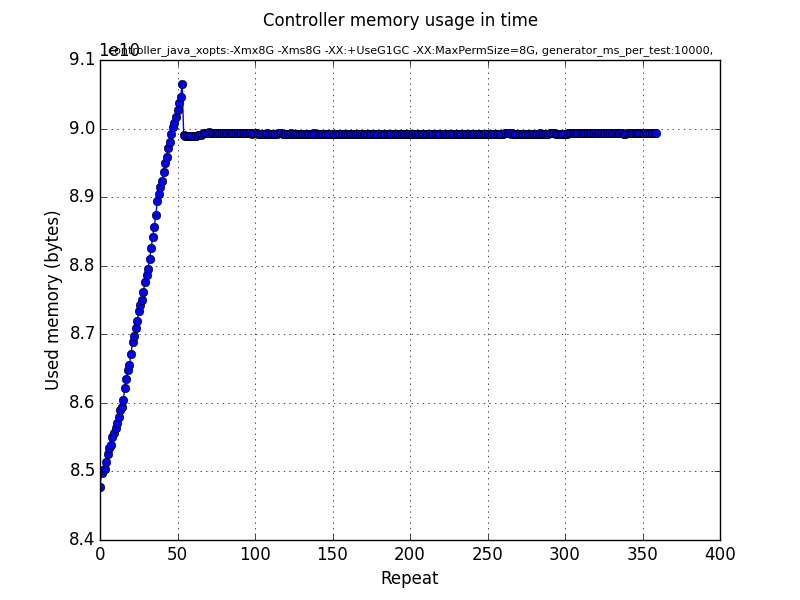-
Notifications
You must be signed in to change notification settings - Fork 5
ODL Lithium SR1 stability results
Konstantinos Papadopoulos edited this page Mar 16, 2016
·
2 revisions
In this section we present indicative results regarding the stability of OpenDaylight Lithium SR1 release with MT-Cbench switches. The objective is to investigate controller performance trends as time passes.
We used the stress_test/stress_test_confs/sb_active/stability_mtcbench.json
configuration file as a baseline, running it for 500 and 16 switches.
Configuration:
- 32-core server, 256GB RAM
- Controller: OpenDaylight Lithium SR1 ("DS drop-test" mode)
- MT-Cbench emulator ("Latency" mode)
- 50 switches per thread, 10 threads
- 360 internal repeats, 10 seconds each (1h total running time)
- 8 seconds delay between thread creation
The plots below show performance and memory usage in time.


Configuration:
- 32-core server, 256GB RAM
- Controller: OpenDaylight Lithium SR1 ("RPC drop-test" mode)
- MT-Cbench emulator ("Latency" mode)
- 16 switches per thread, 1 thread
- 360 external repeats, 10 seconds each (1h total running time)


Configuration:
- 32-core server, 256GB RAM
- Controller: OpenDaylight Lithium SR1 ("RPC drop-test" mode)
- MT-Cbench emulator ("Latency" mode)
- 16 switches per thread, 1 thread
- 360 internal repeats, 10 seconds each (1h total running time)


Intro
Stress Tests
- Switch scalability test with active MT-Cbench switches
- Switch scalability test with active Multinet switches
- Switch scalability test with idle MT-Cbench switches
- Switch scalability test with idle Multinet switches
- Controller stability test with active MT-Cbench switches
- Controller stability test with idle Multinet switches
- Flow scalability test with idle Multinet switches
Emulators
Monitoring tools
- OpenFlow monitoring tools
Design
Releases
ODL stress tests performance reports
Sample Performance Results